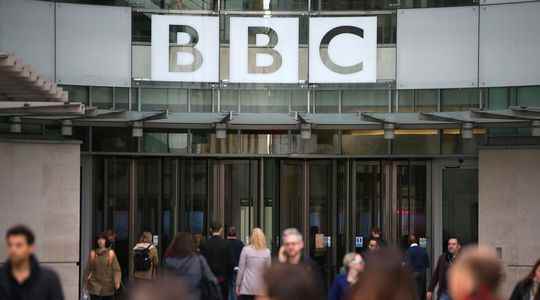On the occasion of the centenary of their “old aunt”, the affectionate nickname they gave to the BBC, the British, famous and unknown, testify every day on the airwaves to their gratitude towards the institution. The British Broadcasting Corporation’s archive services also feed social networks daily with forgotten, glorious or tasty anecdotes. The “Beeb” is a bit like the NHS, their free health service, the British are very attached to it and they are proud of it.
Yet these archives also bring to the surface aspects of the organization that are subject to debate. An interview with its first director-general John Reith, dating from 1967, shows how from its beginnings in the 1920s, the BBC chose to create an artificial accent, which very quickly became the official British accent, known as the name of “RP” (“Received Pronounciation”, in other words, approved pronunciation). “Why did you format an accent rather than give free rein to regional accents on the air?” asks journalist and writer Malcolm Muggeridge. Lord Reith replies, “What I have tried to create is a quality or style of language that would not be laughed at anywhere in Britain.”
The BBC accent is only spoken by 2% of the population
Muggeridge retorts: “yes, but this accent produced by the BBC has had an impact on the social history of the country. This way of speaking, considered the most respectable, is shared by only a tiny minority. The BBC thus becomes , in the mind of the public, the organ of the educated bourgeoisie.” Lord Reith insists: “So is that a problem? My aim was not to offend any part of the country.” In reality, this laudable intention only reinforced a snobbery towards regional accents and aggravated class prejudices in a country obsessed with language. We remember the character of Eliza Doolittle, the flower seller with the accent of the cockney suburbs of Pygmalionplay written by George Bernard Shaw in 1914, and adapted to the cinema by George Cukor in My Fair Lady with Audrey Hepburn and Rex Harrison. Professor Higgins takes the gamble of making Eliza look like a princess in London’s high society by only teaching her to change her intonation and pronunciation. Challenge won.
For twenty years, aware of its social and cultural role, the BBC has opened its antenna to journalists no longer hiding their regional origins. Nothing very pronounced of course, but different melodies from all over the United Kingdom resonate today on its antennas. A development welcomed, in particular by Oliver Kamm, columnist at the Times and author of an English grammar manual, The non-pedantic guide to English usage. “There are as many accents as there are English people. What is known as the BBC accent is only spoken by 2% of the population and the idea that it is the correct accent is totally wrong. .” A report by the Sutton Trust on social mobility confirms even today the persistence of linguistic prejudices across the Channel. According to this study, the English spoken in Birmingham, Manchester, Liverpool but also the Indian accent are the least considered, while the English of the BBC, but also the Scottish and French accent are the most appreciated. Linguistic snobbery still has a bright future in Britain…
